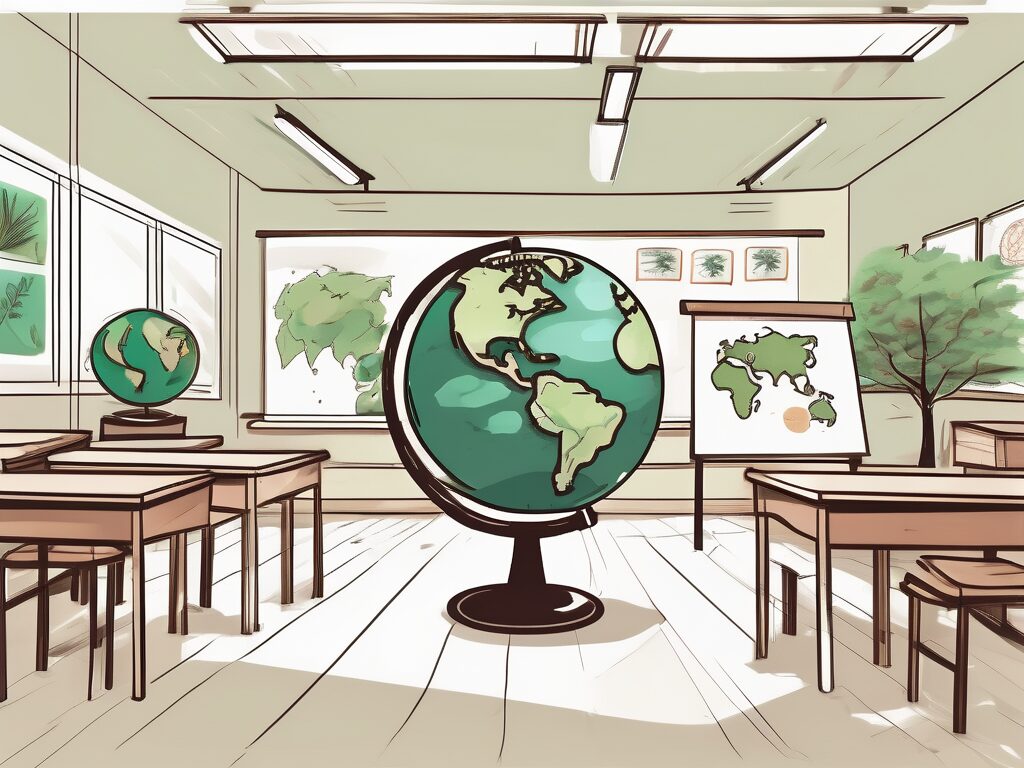The world is becoming increasingly aware of the importance of environmental education. As the most populous country on the planet, China has a significant role to play in this global shift. With the introduction of the International Postgraduate Certificate in Education (IPGCE), a new avenue has opened for educators to contribute to this vital field. This article will delve into six key points regarding environmental education in China with an IPGCE.
1. Understanding the Importance of Environmental Education
Before we delve into the specifics of the IPGCE, it’s crucial to understand why environmental education is so important. This field of study is not merely about learning facts about the environment. It’s about fostering an understanding of how our actions impact the world around us and developing the skills and knowledge to make sustainable decisions.
For a country like China, with its vast population and rapid industrial growth, the stakes are particularly high. Environmental education can play a pivotal role in shaping the country’s future, promoting sustainable practices, and mitigating the effects of climate change.
2. The Role of the IPGCE in Environmental Education
The IPGCE is a globally recognised qualification for teachers. It provides educators with the skills and knowledge they need to teach in an international context. In the realm of environmental education, this is particularly valuable.
With an IPGCE, educators can bring a global perspective to their teaching, helping students understand the interconnectedness of environmental issues. They can also incorporate the latest international research and best practices into their lessons, ensuring their students receive a high-quality education.
2.1. IPGCE and its Flexibility
The IPGCE is a flexible qualification that can be tailored to suit individual teachers’ interests and career goals. For those passionate about environmental education, this means the opportunity to specialise in this area and become leaders in the field.
Moreover, the IPGCE is not tied to a specific curriculum, allowing teachers to adapt their teaching to the needs of their students and the environmental issues most relevant to their local context.
3. The Current State of Environmental Education in China
Environmental education in China is still in its early stages. While there is growing awareness of environmental issues, this has not yet translated into widespread environmental education in schools. However, the introduction of the IPGCE is set to change this.
With more teachers gaining this qualification, we can expect to see a rise in the quality and quantity of environmental education in China. This will not only benefit students but also contribute to the country’s broader environmental goals.
4. The Challenges of Implementing Environmental Education in China
Implementing environmental education in China is not without its challenges. One of the main obstacles is the lack of resources and training for teachers. This is where the IPGCE comes in, providing teachers with the skills and knowledge they need to effectively teach environmental education.
Another challenge is the traditional focus on rote learning in Chinese schools. Environmental education requires a more interactive and experiential approach, which can be a significant shift for many teachers and students. However, with the right training and support, this transition can be successfully managed.
5. The Potential Impact of Environmental Education in China
The potential impact of environmental education in China is immense. With its large population, even small changes in behaviour can have a significant effect. For example, if every person in China were to reduce their plastic consumption by just 10%, this would result in a reduction of millions of tonnes of plastic waste each year.
Moreover, as China continues to grow and develop, it has the opportunity to set a global example of sustainable development. By prioritising environmental education, China can help shape a more sustainable future for the entire planet.
6. The Future of Environmental Education in China
The future of environmental education in China looks promising. With the introduction of the IPGCE and a growing recognition of the importance of environmental education, we can expect to see significant progress in this area.
While there are undoubtedly challenges to overcome, the potential benefits for both China and the world are enormous. With dedicated educators armed with an IPGCE, the future of environmental education in China is in good hands.
As we move forward, it’s clear that environmental education will play an increasingly important role in our global society. And with the help of the IPGCE, China is well-positioned to be at the forefront of this movement.
Take the Next Step in Your Environmental Education Journey with IPGCE
Are you ready to elevate your teaching career and make a substantial impact on environmental education in China and beyond? Join the UK’s #1 Teacher Training Course, the IPGCE, and overcome the barriers that hold back so many aspiring educators. With our program, you’ll not only enhance your qualifications, leading to increased interview callbacks, but you’ll also unlock new career progression opportunities, experience a significant salary boost, and connect with a global network of professionals. Embrace the flexibility of online study and gain a deeper understanding of international curricula. Don’t let this chance slip by. Join the IPGCE program today and become a leader in the transformative field of environmental education.

